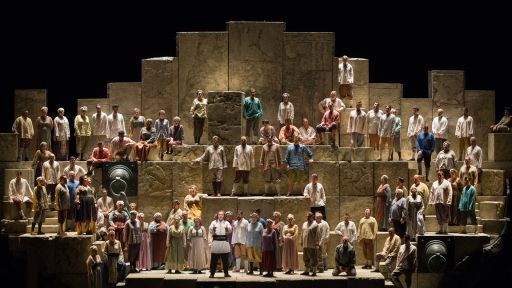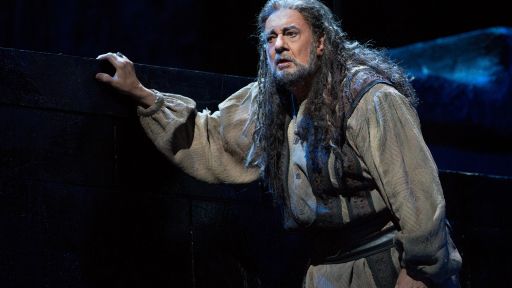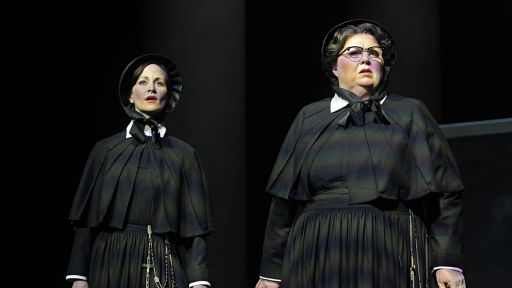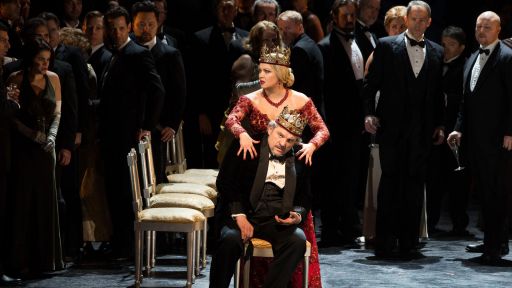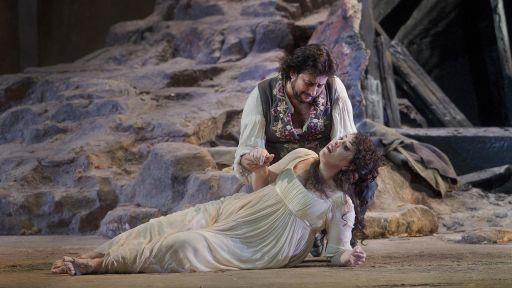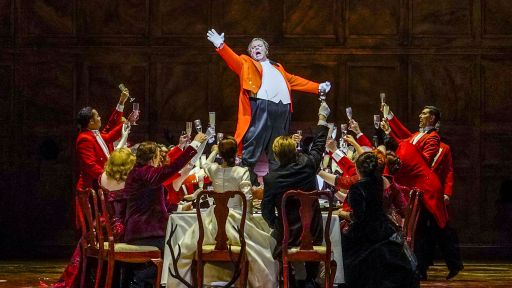TRANSCRIPT
JAMES LEVINE: A mistake is not the end of the world.
And it disturbs me when people act as though it is.
The human...they want us to go up there and sweat blood and give our nerves and then if something misfires or something is wonderful, most opera lovers understand that.
And they understand that in trying your best and in going for it, you can't keep everything calibrated always at the same time.
The miracle is that you can control as much of it as you do.
I think if you go into a performance with the idea that you're gonna be perfect, this is not an artistic concept.
There's no such thing for an artist as perfect.
PETER GELB: Right.
You should go into a different field if you want that.
PLACIDO DOMINGO: I always say this.
And I say this, really totally honest.
I know exactly in my mind how to sing.
But I have never been able to do it the way... [LAUGHTER] PLACIDO DOMINGO: I promise you, I promise you.
PETER GELB: You've come pretty close.
PLACIDO DOMINGO: Perfect...without all the diminuendos and all the piano...everything.
I know exactly what I wish I was able to do it, you know.
In any case, I'm happy of the way...how long I have going.
PETER GELB: In speaking about Nabucco, this is an opera you introduced to the new Met.
All your life you expanded your repertoire with new pieces - whether they're contemporary works or lesser known classics.
What makes Nabucco such an interesting piece for you to be conducting at this point in your career would you say?
JAMES LEVINE: The whole opera is one of those among a handful in which the uppermost issue is the relationship between inward legato moving material and phenomenally extraverted energetic material.
It's one of these pieces in which the energy is one of the main things.
And that's so captivating in this piece.
When you consider that he had over 25 masterpieces inside him still to come out, that makes this piece even more of a miracle.

